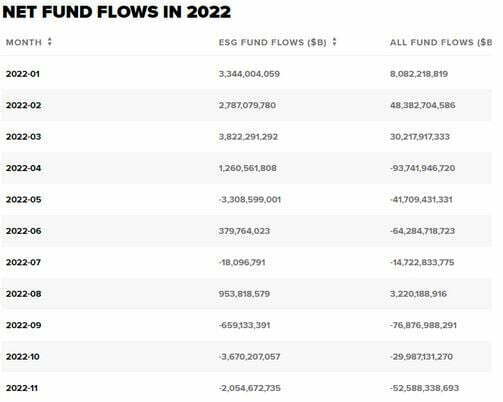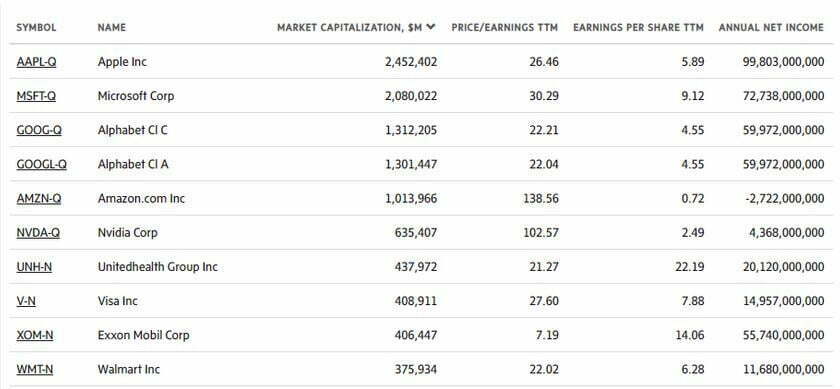The rise of woke capitalism has created insidious new avenues for those who advance such causes, with ESG being one.
When I was in business school in the 80s, the thought of anything other than maximizing shareholder wealth was never a question.
The professor of laissez-faire capitalism, Milton Friedman, would be wondering what on earth is going wrong with priorities in place at the largest investment funds that rate safe places in public restrooms ahead of profits for investors.
It’s a bad idea and is beginning to lose traction with investors. Money managers who utilize the ESG approach have been strong-armed by the woke left and are currently paying the price as returns in such funds do not outperform bellwether averages. And how does one measure the social impact of ESG on a company or community, as it is virtually impossible to quantify?
From a financial standpoint, it is quantitatively easy to compare funds that are specifically ESG to market benchmarks and even to individual companies based on their involvement in ESG.
According to Mike Edleson, a retired chief risk officer of the University of Chicago’s endowment and former chief economist of NASDAQ, from June 30, 2021, through January 31, 2023, the market was down overall by 1.8% for the S&P 500 and 3.2% for the Russell 1000.
ESG funds performed worse, with most losing 2.5% to 6.3%.
In recent months headlines have featured GOP politicians criticizing investment firms, including BlackRock, for offering funds focusing on environmental, social, and governance issues. As noted above, investors added less to sustainable funds in a bad year for stocks but will end the year close to flat in asset flows. Despite lackluster returns, there is still an appetite for these investments.
According to Alyssa Stankiewicz, Morningstar’s associate director of sustainable fund research, “The lack of a stampede out of ESG funds belies the negative narrative that has sprung up around ESG investing. Anti-ESG has gotten much attention and isn’t necessarily reflected in the data.”
The following chart shows fund flows into ESG and all funds in 2022.

One of the reasons that the returns of ESG funds and the bellwether S&P are similar is that the companies making up the fund and the index are similar as well.
Looking at the top 10 holdings in the S&P 500 ESG index, you wouldn’t know it from the S&P 500. Yes, that’s Exxon Mobil Corp. in the top 10.

While the “E” in ESG is for the environment, in 2023, it will probably be all about energy.
Whether the lag in ESG performance continues depends, crucially, on whether oil continues to outperform, since the absence of oil from most ESG funds hurt 2022 results. According to Fidelity Investments’ portfolio manager Maurice Fitzmaurice, “Oil and gas demand should keep growing as effects of the Covid pandemic pass, while lost supplies from Russia prod oil prices to rise.”
Funds that eschew ESG have turned in mixed performances, with energy the big difference maker. As you might expect, ESG fund flows in Europe have held up better than in the U.S., most notably because of the more pro-ESG regulations, if you can believe that. You can surely look to Brussels to be on the wrong side of every major issue.
When it comes to retirement funds and pension plans, which are a huge monetary driver, a new Labor Department rule announced last month reverses a Trump administration policy and allows administrators of 401(k) plans to consider ESG factors, along with shorter-term financial considerations, in selecting investment options for members.
Most Americans with pension funds would be hard-pressed to know how each dollar is allocated, let alone whether their hard earned funds were being politically directed into causes which they disagree with. Pushback is coming.
Florida governor Ron DeSantis has prohibited woke ESG investing in state investments. According to the state of Florida, Governor Ron DeSantis and Trustees of the State Board of Administration formally approved measures to protect Florida’s investments from woke environmental, social, and corporate governance, ensuring that all investment decisions focus solely on maximizing the highest rate of return.
Going back to the corporate argument of Mr. Edleson, his data indicated that, as common sense would suggest, companies that focus on profits outperform companies that don’t.
Investing is a tough business in and of itself, let alone mixing in social agendas. Maximizing the rate of return for investors.
What a novel approach.











